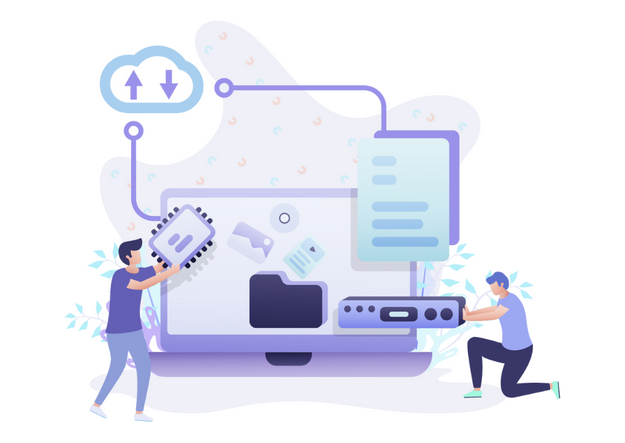Undergraduate Programmes4 Year – BSc Information...

Teaching Method
80% Practical training
BSc Information Technology - 4 Years
Information Technology (IT) refers to the use and application of computer systems, software, and networks to store, retrieve, transmit, and manipulate data.
It encompasses a wide range of technologies that enable individuals and organizations to process information efficiently, communicate effectively, and make informed decisions in various fields. IT plays a crucial role in modern society, driving advancements in business, education, healthcare, and numerous other sectors
Admission Deadline
-
-
SESSION 1
-
Admission Open – November
Admission Closes – March
-
-
SESSION 2
-
Admission Open – May
Admission Closes – August
Syllabus & Requirements
Syllabus
Download PDF – Click here
Admission requirements
- WASSCE or SSSCE or GBCE or HND or MATURE or GCE or Baccalaureate or Undergraduates or Graduates
Download PDF – Click here
Duration and Fees
Tuition Fees –
Ghanaian – GHC 4,000 per semester
Non – Ghanaian – GHC 9,000 per semester
Mandatory Fees
GHC 500 (ID Card, SRC, Welfare, Library & others)
Duration – 4 years (8 semesters)
Admission Process
Step 1 – Register at campus or To Register Online – Click Here
Step 2 – Pay at least a 50% Course Fee to complete your admission Pay at Campus or Online – Click here
Hostel and Accomodation
Hostel facilities are available
Hostel Fees – GHC 700 per month
Our hostels are clean and hygenic
Job Description
Network Administrator
Job Role: Managing and maintaining an organization’s computer networks.
Job Description: Configuring and troubleshooting network devices, ensuring connectivity, and implementing security measures.
Salary: $50,000 – $80,000 per year.
Software Developer
Job Role: Designing, coding, testing, and maintaining software applications.
Job Description: Collaborating with cross-functional teams to develop innovative software solutions based on user requirements.
Salary: $60,000 – $100,000 per year.
Systems Analyst
Job Role: Analyzing and improving information systems for organizations.
Job Description: Evaluating business processes, gathering requirements, and proposing IT solutions for efficiency and effectiveness.
Salary: $70,000 – $90,000 per year.
Database Administrator
Job Role: Managing and organizing databases to ensure data availability and security.
Job Description: Installing, configuring, and maintaining database systems, as well as optimizing database performance.
Salary: $60,000 – $100,000 per year.
IT Security Analyst
Job Role: Protecting computer systems and networks from security breaches.
Job Description: Implementing security measures, monitoring for security incidents, and responding to cybersecurity threats.
Salary: $70,000 – $110,000 per year.
Web Developer
Job Role: Building and maintaining websites and web applications.
Job Description: Developing web solutions, ensuring responsiveness, and collaborating with designers and other developers.
Salary: $50,000 – $90,000 per year.
IT Project Manager
Job Role: Planning, executing, and closing IT projects within an organization.
Job Description: Leading project teams, managing budgets and timelines, and ensuring successful project delivery.
Salary: $80,000 – $120,000 per year.
Business Intelligence Analyst
Job Role: Analyzing data to provide business insights and support decision-making.
Job Description: Designing and implementing BI solutions, generating reports, and interpreting data trends.
Salary: $70,000 – $100,000 per year.
Quality Assurance (QA) Tester
Job Role: Ensuring the quality and functionality of software applications.
Job Description: Testing software, identifying bugs, and working with development teams to address issues.
Salary: $50,000 – $80,000 per year.
Cloud Solutions Architect
Job Role: Designing and implementing cloud-based solutions for organizations.
Job Description: Architecting and deploying scalable and secure cloud infrastructure, optimizing performance and cost.
Salary: $90,000 – $130,000 per year.
Note: Salaries mentioned are approximate figures and can vary based on factors such as location, industry, company size, and individual experience.
FAQ related to BSc Information Technology
1. How to apply for BSc Information Technology at SIIMT? ▼
To apply for BSc Information Technology at SIIMT, click here. Follow the registration process on the provided page to start your journey in SIIMT - BSc Information Technology
2. What does an IT person do? ▼
An IT person, or Information Technology professional, is responsible for managing, maintaining, and securing computer systems and networks. Their tasks include troubleshooting hardware and software issues, implementing security measures, and ensuring the overall functionality of IT infrastructure.
Learn more on CompTIA
3. What is the meaning of Information Technology? ▼
Information Technology (IT) refers to the use and management of computers, software, networks, and electronic systems for storing, processing, and transmitting information. It encompasses a wide range of technologies used to handle telecommunications, databases, and cybersecurity.
Explore more on Techopedia
4. Is information technology still a good career? ▼
Yes, information technology continues to be a promising and evolving career path. With the increasing reliance on technology in various industries, IT professionals are in high demand. Job opportunities range from cybersecurity specialists to software developers, making it a diverse and stable field.
Forbes - Technology Trends
5. What are the basics of IT? ▼
The basics of IT include understanding computer hardware and software, networking principles, system administration, programming concepts, and cybersecurity fundamentals. IT professionals should have knowledge in areas like databases, operating systems, and troubleshooting techniques.
TechRepublic - IT Basics
Embark on a transformative BSc Information Technology journey at SIIMT, immersing yourself in practical expertise and excellence
WHY CHOOSE US?
Practical Training
Bridging knowledge with experience, shaping skills, and preparing for real-world success
Industry Experts
Students learn from industry experts, shaping skills for real-world success and job market.
Updated Syllabus
Our syllabus enriches learning, fostering skills, and prepares students for a brighter future
Table of Contents
Toggle
